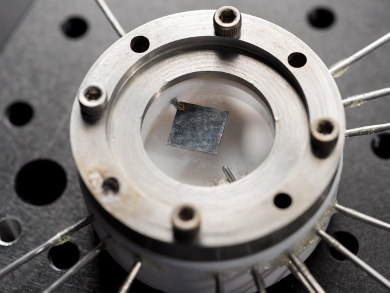Lithiated anode materials in rechargeable batteries are subjected to large volume changes during charging and discharging. While silicon anodes could theoretically store a lot more lithium than the commonly used graphite electrodes, the material has been considered too brittle to withstand this mechanical stress.
Ting Zhu and Shuman Xia, Georgia Institute of Technology, Atlanta, USA, and colleagues have investigated the mechanical properties of lithiated silicon using both mechanical tests and molecular dynamics simulations. The team reports that while silicon with small Li concentrations cracked easily, lithium-rich silicon became more ductile and damage-tolerant. Calculations attributed this to the lower ratio of strong localized Si–Si bonds in the material and the formation of more delocalized bonds between the lithium atoms.
Based on these results, the researchers suggest a range of operating conditions under which the silicon remains ductile. The team hopes the work will cause engineers to take a new look at all-silicon electrodes for high-capacity batteries.
- High damage tolerance of electrochemically lithiated silicon,
Xueju Wang, Feifei Fan, Jiangwei Wang, Haoran Wang, Siyu Tao, Avery Yang, Yang Liu, Huck Beng Chew, Scott X. Mao, Ting Zhu, Shuman Xia,
Nat. Commun. 2015, 6, 8417.
DOI: 10.1038/ncomms9417



